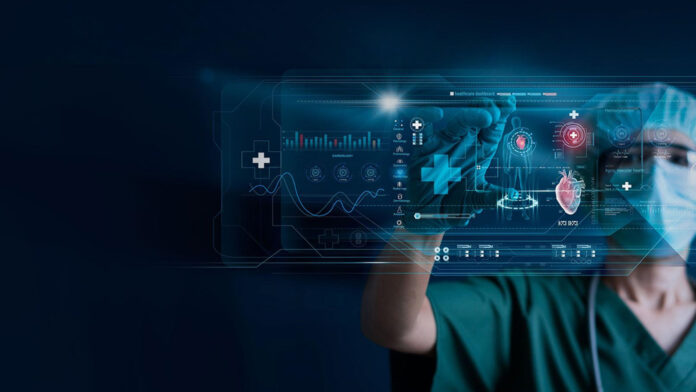Introduction
In recent years, we have witnessed an unprecedented revolution in healthcare through the power of technological innovations. From artificial intelligence (AI) and machine learning (ML) to robotics, virtual reality (VR), and telemedicine, these cutting-edge technologies are transforming the way we deliver and receive healthcare services. This article explores the various ways in which tech innovations are revolutionizing healthcare, improving patient outcomes, enhancing efficiency, and paving the way for a healthier future.
Artificial Intelligence and Machine Learning
Artificial intelligence and machine learning are revolutionizing healthcare by enabling healthcare providers to analyze vast amounts of data and derive valuable insights. AI algorithms can quickly and accurately diagnose diseases, predict outcomes, and identify the most effective treatment plans. These technologies can assist healthcare professionals in making evidence-based decisions, resulting in improved patient care and reduced errors. Furthermore, AI-powered chatbots and virtual assistants are enhancing patient engagement and enabling personalized, round-the-clock support.
Robotics in Surgery
Robotic-assisted surgeries have emerged as a game-changer in healthcare. With enhanced precision, dexterity, and control, robotic surgical systems enable surgeons to perform complex procedures with increased accuracy and minimal invasiveness. Robotic systems provide surgeons with real-time visualizations, 3D models, and precise instrument control, resulting in shorter recovery times, reduced pain, and improved surgical outcomes. As robotics continue to advance, we can expect further breakthroughs in surgical procedures and patient care.
Virtual Reality for Pain Management and Rehabilitation
Virtual reality (VR) technology is not just limited to gaming and entertainment; it is making significant strides in healthcare as well. VR has proven to be an effective tool for managing pain, particularly in chronic pain conditions and during medical procedures. By immersing patients in virtual environments, VR distracts them from pain stimuli, providing a non-pharmacological pain management approach. Additionally, VR is being utilized in rehabilitation therapy to improve motor skills, balance, and cognitive functions in patients recovering from strokes or traumatic injuries.

Telemedicine and Remote Monitoring
Telemedicine has revolutionized the way healthcare is delivered, particularly in remote or underserved areas. Through video conferencing and digital communication platforms, patients can connect with healthcare professionals, receive consultations, and even get prescriptions without leaving their homes. Telemedicine has not only improved access to care but has also reduced healthcare costs and waiting times. Remote monitoring devices, such as wearables and IoT-enabled sensors, allow healthcare providers to track patients’ vital signs, collect real-time data, and intervene proactively when necessary, thereby preventing complications and improving overall health outcomes.
Big Data Analytics and Predictive Healthcare
The healthcare industry generates enormous amounts of data, including electronic health records, medical imaging, and genomic information. Big data analytics and predictive modeling techniques can unlock valuable insights from this vast data repository. By analyzing patterns and trends, healthcare professionals can identify high-risk patients, predict disease outbreaks, and develop targeted interventions. Big data analytics also facilitate population health management by identifying trends and factors that influence public health and enabling proactive interventions to prevent disease spread.
Precision Medicine and Genomics
The field of genomics, coupled with advances in computational power and AI, has paved the way for personalized medicine. Precision medicine utilizes an individual’s genetic profile, lifestyle factors, and environmental influences to tailor treatment plans and preventive strategies. By understanding a patient’s genetic predisposition to diseases, healthcare providers can offer targeted therapies, reduce adverse drug reactions, and improve treatment efficacy. Precision medicine has the potential to transform the healthcare landscape, shifting from a one-size-fits-all approach to individualized care.
Conclusion
The healthcare industry is undergoing a technological revolution, with advancements in AI, robotics, virtual reality, telemedicine, big data analytics, and genomics. These tech innovations are reshaping the way we diagnose, treat, and prevent diseases, ultimately leading to improved patient outcomes, enhanced efficiency, and reduced healthcare costs. As these technologies continue to evolve, it is essential to address ethical considerations, ensure data privacy, and maintain human oversight to harness their full potential. The future of healthcare holds immense promise as technology and innovation work hand in hand to revolutionize the way we deliver and experience healthcare services.

